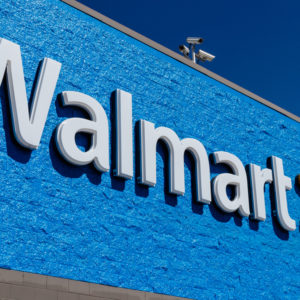In an era when businesses are on the ropes with supplies, prices, and customer loyalty, two of America’s biggest corporations just hit a PR home run by putting customers first.
Walmart and Target announced better-than-expected growth in November but also increased costs due to supply-chain issues and pre-inventory purchasing. When pressed on investor calls about passing those costs along to consumers, both companies said they are going to eat as much of the costs as possible. Investors were less than happy, engaging in a stock sell-off which one analyst said temporarily cost each retailer over three percent of their value.
But even as analysts reacted poorly, the press made Walmart and Target heroes. Millions of people were told that big-box retailers put Main Street ahead of Wall Street. And despite investor concerns, CNBC reported that both companies’ CEOs stuck to their guns:
McMillon said Walmart must uphold its reputation for value — or risk scaring away customers who feel sticker shock. He invoked the big-box retailer’s founder in an interview on Tuesday with CNBC’s “Squawk on the Street.”
“We save people money and help them live a better life,” he said. “Those are the words that came out of [Walmart founder] Sam Walton’s mouth. He loved to fight inflation. So do we.”
Cornell said Target is playing the long game, too, even as that means swallowing extra costs.
“We are protecting prices,” he said on a call with reporters. “It’s as important to our guests this year as safety has been throughout the pandemic.”
Few people would have blamed Walmart and Target for increasing prices. The fact that they didn’t goes against expectations, is pro-customer and pro-growth and set both companies up to be heroes in the eyes of the press and the shoppers who consume that press.
All Walmart and Target did was choose long-term growth through customer loyalty instead of short-term profits, which could cause customers to seek other retailers. There is the age-old principle that it’s better to create high-profit repeat customers than to spend time, money, and other scarce resources seeking new customers whose loyalty is uncertain. Or as Touchdown Strategies founder James Davis put it to me, Walmart and Target chose “good profit” through “succeeding by creating value for others.”
This strategy counters the stereotype that conglomerates don’t care about consumers. However, serial entrepreneur and investor Lee Rashkin said companies big and small use this strategy every day. “These [CEOs] are two of the best leaders in the industry who beat expectations and are thriving despite the pandemic and supply-chain challenges,” Lee told me. “More importantly, they reminded Wall Street that undermining your management team to protect short-term profits is almost never the right decision. Investors should either trust their CEOs or replace them.”
Counter-narrative approaches are often a shiny object for the press. But customers don’t believe politicians who say things that are too good to be true, and that cynicism carries over to corporations. Therefore, Walmart and Target also had to appear genuine when claiming to put customers first. They accomplished this by:
- Foregoing short-term profits during a high-volume season.
- Standing up against lost stock value.
- Engaging in disciplined messaging. The quotes above are about “fight[ing] inflation,” helping people “live a better life,” and “protecting prices.”
By appearing sincere in every part of their Christmas season messaging – from the announcement to suffering investor selloffs to follow-up media appearances – Walmart and Target got themselves on millions of consumers’ Nice List. Prioritizing Main Street instead of Wall Street gained customer loyalty which will result in millions of dollars of revenue over the next few weeks and billions over the next few years. Some investors may not be happy, but let’s be honest – without customers, investors don’t matter. Walmart and Target know that, have acted accordingly, and have hit a PR home run.

